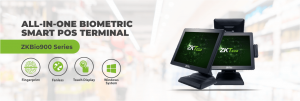
How a POS System Can Help You Save Money
A POS (Point of Sale) system is a software and hardware combination that helps you run your business more efficiently. It is the most efficient tool available to store owners for managing and evaluating their operations.
A computer, a physical terminal, a scanner, a printer, and other devices that run the point-of-sale software are examples of hardware.
Small businesses may benefit in a variety of ways from excellent point-of-sale systems. They can not only assist with day-to-day sales and inventory management, but they can also assist in making your business evolve through information as well as loyalty and marketing tools.
Here are some of the advantages of a good POS System:
1. Efficiency in your Customer service
The customer is supreme! Your company will cease to exist if you do not have consumers! When you deliver a positive customer experience, client happiness rises, and a speedy point of sale helps you to complete transactions more quickly. Because customers detest waiting, having a speedy point of sale is advantageous to them as well.
Cross-selling options on your POS may also be used to suggest goods that are related. Cross-selling features enable you to sell items that are related to the one being purchased by the consumer. If a client orders a popular soft drink, for example, your employee can add sweets such as doughnuts or eggrolls to his order. As a result, customers may be happier with their purchases.

2. It Improve Inventory Control
Keeping track of your store’s inventory is straightforward with a point-of-sale system. It allows you to view how many goods you own over time and keep track of your inventory in real-time.
If these goods are already in your catalog when you receive your inventory, just scan them, enter the amounts, and the items will be added to your POS software’s inventory. This saves a lot of time when compared to manual inventory tracking. In the end, your inventory will have fewer mistakes.
3. Management of Employees
When shopping for a POS system, employee management is often the most ignored component. Are you sure you’ve got the right amount of salesmen on your team? What should your weekly plan be based on your sales forecast? It also has to keep track of employee hours and sales results.
Examine each employee’s sales performance metrics. Key selling statistics such as the proportion of accessory sales, number of products per ticket, and sales per hour may be used to measure your employees’ productivity. Consider this scenario: you have four employees who all work the same hours, but which one is the most profitable? This information is available to you. It will also assist you in rewarding important selling skills behaviors, and as we all know, what is rewarded is repeated.

4. Advanced Reporting
It takes a long time to compile, complete, and organize manual reports. It might be difficult to obtain relevant data for your reports in order to fully grasp your company’s health. The software in a POS system allows you to create reports automatically, providing you a complete picture of your business.
A POS system generates reports for many aspects of the business automatically. All sales, contacts, pricing, acquisitions, inventory, and other information are included. The analysis of reports on a range of issues might help you make business decisions. It will also be easier to track the progress of your business and implement process and sales changes.
In conclusion, point of sale systems provide several advantages for small businesses, and a successful system is critical in today’s digital world. From initial stock ordering to post-sale, targeted marketing, they can make all elements of day-to-day operations more effective and lucrative.
Looking for a better Retail POS System to help you develop faster?
BOOK A CONSULTATION WITH SECURETECH NIGERIA
